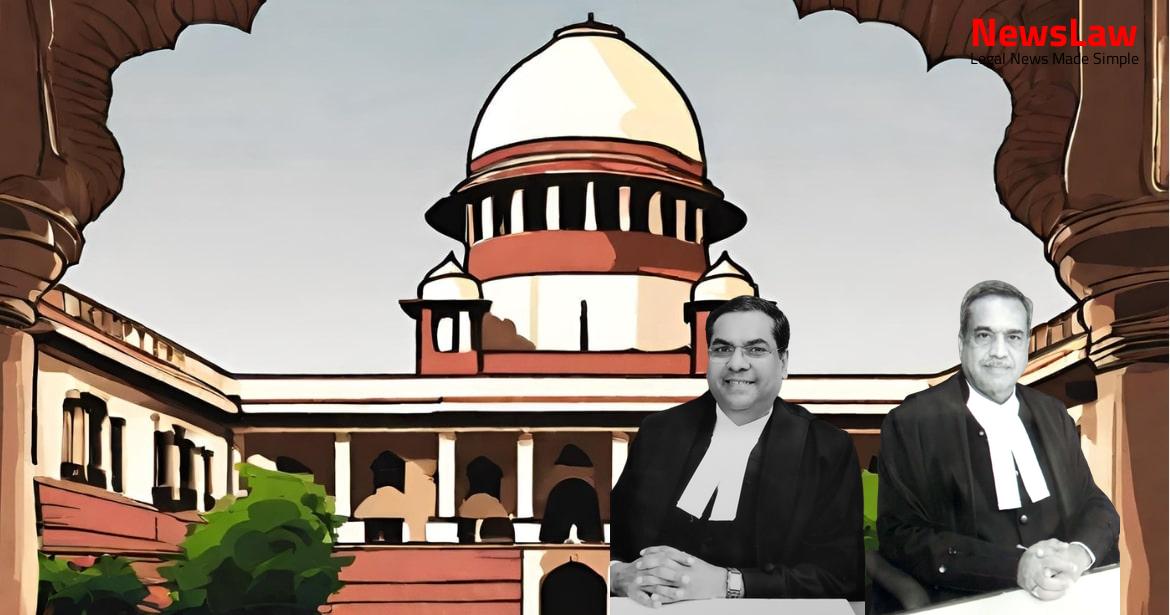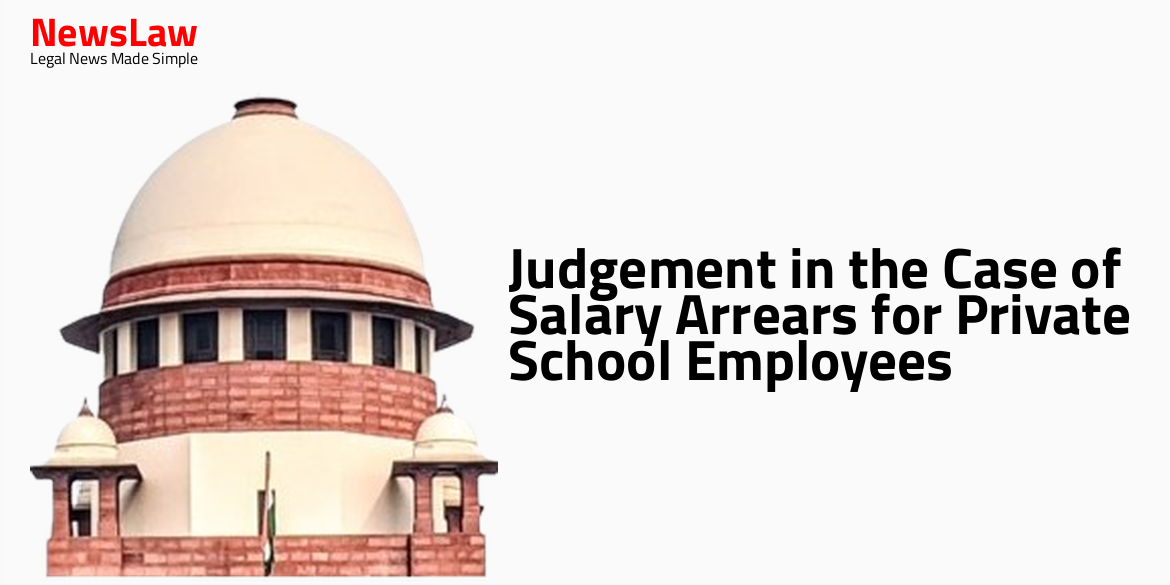Delve into the nuances of the NRI quota in PG medical admissions as the court’s legal analysis sheds light on the intricacies of admission processes in private medical colleges. Understanding the court’s interpretation and rationale is essential in comprehending the challenges faced by students and institutions in ensuring fair and transparent admissions. Stay informed on the latest developments in this critical legal case.
Facts
- Instruction booklet finalized and sent to Hon’ble Advocate General for vetting
- Medical and dental colleges to delineate categories of seats and respective fees in accordance with laws and regulations
- Separate documents required for NRI candidates in Proforma II and as undertakings
- Eligibility for NRI seats specified in the order
- Admission process for PG medical and dental courses for AY 2020-21 initiated in early 2020
- Seat matrix and fee structure obtained from all medical dental colleges
- Meeting of PG Counselling board held on 17.03.2020 attended by representatives of colleges and officials
- NEET PG 2020 examination held in January, results declared on 31.01.2020
- Appellants registered under NRI category for MD (Radio-diagnosis) seats in Rajasthan
- Instruction booklet for State Medical & Dental PG Seats Allotments, 2020 outlined eligibility criteria and seat distribution
- Responsibility for seat types in seat matrix lies with the institutions
- Criteria for sponsorship of NRI candidates detailed
- Proof of NRI sponsorship to be submitted by all NRI candidates
- Selection process for admissions started with NEET PG Test held in January, 2020
- Schedule/calendar for filling PG seats made available online and in newspapers
- NEET PG Counselling Board deleted the NRI quota in its final seat matrix on 13.04.2020 without rationale.
- Third-party appeals were filed by students and the board due to the deletion of NRI quota.
- The Division Bench allowed the appeals, accepting the plea of colleges, board, and students.
- The Single Judge of the High Court relied on previous rulings and minutes of the meeting to hold the deletion of NRI quota as contrary to law.
- Appellants were given admission to their chosen courses in compliance with the court’s directions.
- Two appellants approached the Rajasthan High Court, claiming that the decision to abolish the NRI quota was arbitrary.
- The Division Bench reasoned that no student can claim a right to a specific quota.
- A notification on 14.04.2020 stated that the seat matrix for the current year would not include the NRI quota.
- Respondents argued that no student has a right to claim admission and private colleges are not obliged to earmark a separate NRI quota.
Also Read: Judicial Review of Answer Key in Teacher Selection Process
Arguments
- Colleges explained that NRI quota seats were not being filled to expected levels, leading to merging with management seats.
- NRI quota candidates were accommodated transparently and uniformly for management quota seats based on merit.
- No real prejudice was faced by NRI candidates due to the process.
- Appellants challenged the overturning of the Single Judge’s decision to eliminate NRI quota for PG medical and dental seats in Rajasthan for 2020-21.
- Dr. Tirth Jitendra Kumar Modi applied to intervene after being admitted post the Single Judge’s ruling and attending classes.
- Argument raised against the Single Judge’s direction to admit petitioners within the NRI quota regardless of merit.
- Counsel for private colleges defended the decision to eliminate NRI quota due to pandemic-related circumstances.
- Reference made to P.A. Inamdar case and Modern Dental College decision regarding creation of NRI quota in colleges.
- Support for the argument that candidates admitted under NRI quota post Single Judge’s directions had low merit.
- Private educational institutions, including medical colleges, are not obligated to set apart a quota for NRI candidates.
- The observations in the P.A. Inamdar case allow colleges to avail of a 15% NRI quota at their discretion.
- The management of a private college can choose to have an NRI quota in varying percentages each year based on demand.
- The Division Bench’s ruling resulted in adverse consequences as students had to give up seats in other medical colleges to accept NRI seats.
- The managements of private colleges cannot unilaterally withdraw the NRI quota at the last moment, negatively impacting students’ choices.
- The NRI quota aims to augment college revenues, benefit poor but meritorious students, and provide cultural exposure to foreign students.
- The genesis of the NRI quota can be traced back to observations in the TMA Pai Foundation case, emphasizing autonomy in administration for unaided private colleges.
- The decision of private colleges in Rajasthan not to utilize the NRI quota and instead fill the 15% from management seat applicants was deemed justified.
- The NRI quota did not apply in this case as private colleges had not claimed any seats under this quota during seat matrix submissions.
- The seat allotment should strictly follow merit for candidates applying under the NRI and management quotas.
Also Read: Jurisdiction and Substantial Questions of Law in Land Dispute Case
Analysis
- The NRI quota, although discretionary, is not a mandatory part of the admission process in postgraduate medical courses
- Private medical colleges have the authority to decide on the existence and extent of the NRI quota within their internal policy-making domain
- The management of private colleges decided not to proceed with the NRI quota due to concerns about unfilled seats and the evolving COVID-19 pandemic situation
- The decision to abolish the NRI quota was left to the discretion of private institutions
- The discretion of private managements in setting up medical colleges regarding the NRI quota should be reasonably exercised to avoid unfairness to candidates
- A limited reservation of NRI seats up to 15% may be made available to NRIs depending on the discretion of the management, subject to two conditions
- The term ‘NRI’ in admissions is considered a misnomer, and less meritorious students could secure admission under this category by paying higher fees
- Special counselling sessions should be conducted by the board limited to seats filled as a result of the single judge’s directions
- At least one of the parents of students should be an NRI
- The parent shall ordinarily be residing abroad as an NRI
- NEET requirement is paramount for regulating medical courses admissions in India.
- Private colleges have some flexibility in offering NRI or management quotas within defined limits.
- Provisions of the Medical Council of India Act and regulations govern admissions to medical courses.
- Validity of deletion of NRI quota and merger with management quota was not the issue
- Parties argued on the inflexibility of the NRI quota
- No specific time prescribed for institutions to do away with the quota
- Unfairness in deletion observed in specific circumstances of this case
Also Read: Challenge of Secured Creditor’s Procedure
Decision
- The process should be completed within a week from the date of the judgment.
- Directions mentioned in the previous paragraph are specific to this case to ensure justice for all parties.
- All appeals and pending applications are disposed of according to the terms outlined.
Case Title: NILAY GUPTA Vs. CHAIRMAN NEET PG MEDICAL AND DENTAL ADMISSION/COUNSELLING BOARD 2020 AND PRINCIPAL GOVT. DENTAL COLLEGE (2020 INSC 584)
Case Number: C.A. No.-003345-003345 / 2020



